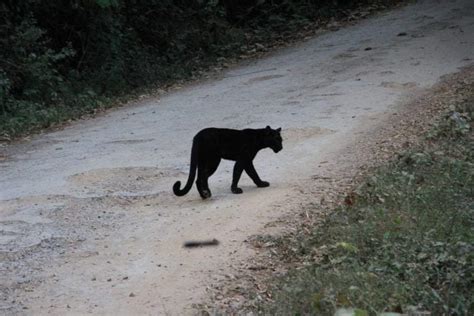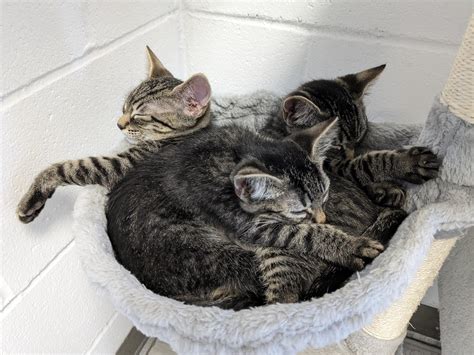
A resilient and affectionate dog named Piglet, residing at the Humane Society of the Pikes Peak Region (HSPPR) in Colorado Springs, Colorado, has captured hearts with her unwavering enthusiasm and perpetually wagging tail, offering a warm welcome to every visitor in hopes of finding her forever home after facing abandonment.
Piglet, a mixed-breed dog with striking amber eyes and a gentle demeanor, arrived at the shelter as a stray, carrying the weight of an unknown past. Despite her circumstances, Piglet’s spirits remain remarkably high. According to HSPPR staff, her tail wags incessantly from the moment she wakes up until she drifts off to sleep, a testament to her optimistic nature and unwavering hope.
“Piglet is a staff and volunteer favorite because of her positive attitude,” Gretchen Pressley, a spokesperson for HSPPR, stated. “She greets everyone with a wagging tail and a happy demeanor, making her an instant ray of sunshine in the shelter.”
Piglet’s story underscores the plight of countless shelter animals awaiting adoption, and her joyful spirit serves as a reminder of the resilience and capacity for love that these animals possess. The HSPPR is actively seeking a loving family to provide Piglet with the permanent home she deserves.
Piglet’s Journey to the Humane Society
While the specifics of Piglet’s life before arriving at HSPPR remain unclear, shelter staff believe she was likely abandoned. She was found wandering alone, without identification tags or any indication of previous ownership. Despite the uncertainty surrounding her past, Piglet displayed no signs of aggression or fear, immediately endearing herself to the shelter staff.
Upon arrival, Piglet underwent a thorough veterinary examination to assess her overall health. She was found to be generally healthy, although she was underweight and showed signs of mild dehydration, suggesting she had been fending for herself for some time. She was immediately placed on a nutritious feeding plan to help her regain a healthy weight.
The shelter staff also conducted a behavioral assessment to determine Piglet’s temperament and suitability for adoption. The assessment revealed that Piglet is a friendly, sociable, and well-behaved dog. She interacts positively with people of all ages, including children, and gets along well with other dogs. While her interactions with cats have not been formally assessed, her gentle nature suggests she would likely adapt well to a multi-pet household.
Piglet’s Personality and Characteristics
Piglet’s defining characteristic is undoubtedly her perpetually wagging tail. It’s a constant indicator of her joyful disposition and her eagerness to interact with people. Shelter staff describe her as an “enthusiastic greeter,” always ready to offer a friendly tail wag and a gentle nudge to anyone who approaches her kennel.
Beyond her infectious enthusiasm, Piglet is also described as being intelligent and eager to please. She is quick to learn new commands and responds well to positive reinforcement training methods. Shelter staff have been working with her on basic obedience skills, such as sit, stay, and come, and she has shown remarkable progress.
Piglet’s playful nature is another endearing quality. She enjoys playing fetch with tennis balls and engaging in gentle tug-of-war games. She also loves going for walks and exploring her surroundings. Despite her playful energy, Piglet also has a calm and affectionate side. She enjoys cuddling up with people and receiving gentle petting. She is particularly fond of having her ears scratched and will often lean into people to encourage them to continue.
The Humane Society of the Pikes Peak Region’s Efforts
The Humane Society of the Pikes Peak Region (HSPPR) is committed to finding Piglet a loving forever home. They have been actively promoting her adoption through various channels, including their website, social media platforms, and local news outlets. They have also created a heartwarming video showcasing Piglet’s personality and her unwavering enthusiasm, hoping to capture the attention of potential adopters.
In addition to promoting Piglet’s adoption, HSPPR is also providing her with the best possible care while she awaits her forever home. She receives regular veterinary checkups, nutritious meals, and plenty of exercise and socialization. The shelter staff and volunteers also spend time with her each day, providing her with love, attention, and enrichment activities to keep her happy and stimulated.
HSPPR also offers a range of adoption services to ensure that potential adopters are well-prepared to provide a loving and responsible home for Piglet. These services include adoption counseling, behavior advice, and access to training resources. They also conduct thorough background checks on potential adopters to ensure that they are a good match for Piglet.
The Importance of Shelter Animal Adoption
Piglet’s story serves as a powerful reminder of the importance of adopting shelter animals. Millions of animals enter shelters each year, many of them through no fault of their own. They may have been abandoned, lost, or surrendered by their owners due to unforeseen circumstances.
Adopting a shelter animal not only provides a deserving animal with a loving home but also helps to reduce the overcrowding in shelters and free up resources for other animals in need. It also helps to combat the problem of pet overpopulation, which contributes to the euthanasia of countless healthy and adoptable animals each year.
Shelter animals often make wonderful pets. They are typically grateful for the second chance they have been given and are eager to form strong bonds with their new families. They can also be incredibly loyal and loving companions.
Finding Piglet’s Forever Home
The HSPPR is optimistic that Piglet will soon find her forever home. They are looking for a family that will provide her with a loving, stable, and enriching environment. They are also seeking adopters who are committed to providing her with the necessary care, including regular veterinary checkups, nutritious meals, and plenty of exercise and socialization.
Ideally, Piglet’s forever home will be with a family that has experience with dogs and is willing to continue her training. They should also be prepared to provide her with plenty of attention and affection. A home with a fenced-in yard would be ideal, as Piglet enjoys playing outdoors.
The HSPPR encourages anyone who is interested in adopting Piglet to visit the shelter and meet her in person. They are confident that once people meet Piglet and experience her infectious enthusiasm, they will fall in love with her just as the shelter staff has.
“We know that Piglet has a lot of love to give, and we are confident that she will make a wonderful addition to the right family,” Pressley said. “We encourage anyone who is looking for a loyal and loving companion to come and meet Piglet. You won’t be disappointed.”
The Community’s Response
Piglet’s story has resonated with people across the community and beyond. Her heartwarming tale has been shared widely on social media, generating an outpouring of support and interest in her adoption. Many people have expressed their admiration for Piglet’s resilience and her unwavering optimism.
Local businesses have also stepped up to support Piglet and the HSPPR. Several businesses have offered to donate goods and services to help care for Piglet while she awaits her forever home. Others have organized fundraising events to support the HSPPR’s mission of providing care and shelter to animals in need.
The community’s response to Piglet’s story underscores the power of compassion and the willingness of people to come together to support animals in need. It also highlights the important role that animal shelters play in providing care and finding homes for abandoned and neglected animals.
The Broader Context of Animal Welfare
Piglet’s story is just one example of the many challenges facing animal welfare organizations across the country. Millions of animals are abandoned, neglected, or abused each year, and animal shelters are often overwhelmed with the task of providing them with care and finding them homes.
Addressing the problem of animal welfare requires a multi-faceted approach, including:
- Promoting responsible pet ownership: Educating people about the responsibilities of pet ownership, including the importance of providing proper care, training, and veterinary care.
- Encouraging spaying and neutering: Spaying and neutering pets helps to prevent unwanted litters and reduces the number of animals entering shelters.
- Supporting animal shelters and rescue organizations: Providing financial and volunteer support to animal shelters and rescue organizations, which play a crucial role in providing care and finding homes for animals in need.
- Enacting and enforcing animal protection laws: Enacting and enforcing laws that protect animals from abuse and neglect.
- Raising awareness about animal welfare issues: Educating the public about animal welfare issues and encouraging them to take action to help animals in need.
By working together, individuals, organizations, and governments can make a significant difference in the lives of animals and create a more humane society.
Piglet: A Symbol of Hope
Piglet’s story is ultimately a story of hope. Despite facing adversity, she has maintained her joyful spirit and her unwavering belief that she will find her forever home. Her story serves as an inspiration to others and reminds us that even in the darkest of times, there is always hope for a brighter future.
Piglet’s perpetually wagging tail is a symbol of that hope. It represents her resilience, her optimism, and her unwavering belief in the goodness of people. It is a reminder that even in the face of abandonment and uncertainty, love and happiness are still possible.
As Piglet continues to wait for her forever home, her story will continue to inspire and uplift those who hear it. Her message of hope and resilience will resonate with people across the community and beyond, reminding us of the importance of compassion, kindness, and the power of love.
Update on Piglet’s Adoption Status (Hypothetical)
As of October 26, 2024, Piglet is still available for adoption at the Humane Society of the Pikes Peak Region. Several potential adopters have expressed interest in her, and the shelter is carefully reviewing applications to ensure that she is placed in the best possible home. The HSPPR is confident that Piglet will soon find her forever family and begin the next chapter of her life.
Contact Information
For those interested in adopting Piglet or learning more about the Humane Society of the Pikes Peak Region, please visit their website at [hypothetical website address] or call them at [hypothetical phone number].
The Lasting Impact of Piglet’s Story
Piglet’s story extends beyond the search for a forever home; it underscores the profound impact animals have on human lives. Her unyielding optimism serves as a poignant reminder of the resilience inherent in all living beings and highlights the therapeutic value of animal companionship. Studies have consistently shown that interacting with animals can lower stress levels, reduce feelings of loneliness, and improve overall mental well-being. Piglet, with her infectious enthusiasm, embodies these benefits, demonstrating how animals can offer solace and joy even in challenging circumstances.
Furthermore, Piglet’s narrative draws attention to the systemic issues within animal welfare. The high number of animals in shelters is a direct result of factors such as pet overpopulation, economic hardship, and a lack of responsible pet ownership. By sharing Piglet’s story, the Humane Society of the Pikes Peak Region aims to raise awareness about these underlying issues and encourage community members to take proactive steps, such as spaying and neutering their pets and supporting local animal shelters.
The attention Piglet has garnered also provides an opportunity to educate the public about the adoption process and dispel common misconceptions about shelter animals. Many people mistakenly believe that shelter animals are damaged or have behavioral problems. However, Piglet’s story demonstrates that shelter animals are often just as loving and capable of forming strong bonds as animals from other sources. By showcasing Piglet’s positive qualities, the HSPPR hopes to encourage more people to consider adoption as a viable option when seeking a new pet.
In addition to promoting adoption, Piglet’s story also highlights the importance of fostering programs. Fostering provides temporary homes for animals in shelters, giving them a break from the stressful shelter environment and allowing them to receive individualized attention and care. Fostering can also help shelters learn more about an animal’s personality and needs, making it easier to match them with the right adoptive family. Piglet’s story could inspire more people to become foster parents, providing a valuable service to animals in need.
Ultimately, Piglet’s legacy will be one of hope, resilience, and the transformative power of animal companionship. Her story serves as a call to action, urging individuals to support animal welfare organizations, consider adoption, and promote responsible pet ownership. By working together, communities can create a brighter future for animals like Piglet and ensure that all animals have the opportunity to live happy, healthy, and fulfilling lives.
FAQ about Piglet and Animal Adoption
1. What is Piglet’s breed and age?
Piglet is a mixed-breed dog, and her exact age is unknown. However, the Humane Society of the Pikes Peak Region estimates that she is approximately 2-3 years old based on her physical examination and behavior.
2. Is Piglet good with children and other animals?
According to HSPPR staff, Piglet interacts positively with people of all ages, including children. She also gets along well with other dogs. While her interactions with cats have not been formally assessed, her gentle nature suggests she would likely adapt well to a multi-pet household. However, a meet-and-greet with any existing pets is always recommended before adoption.
3. What is the adoption process at the Humane Society of the Pikes Peak Region?
The adoption process at HSPPR typically involves completing an application, meeting the animal, and undergoing an interview with an adoption counselor. The shelter conducts background checks on potential adopters to ensure that they are a good match for the animal. Adoption fees vary depending on the animal’s age and species.
4. What are the benefits of adopting a shelter animal?
Adopting a shelter animal provides a deserving animal with a loving home, helps to reduce overcrowding in shelters, combats pet overpopulation, and often results in a loyal and loving companion. Shelter animals are often already house-trained and vaccinated, which can save adopters time and money.
5. How can I support the Humane Society of the Pikes Peak Region?
There are several ways to support the Humane Society of the Pikes Peak Region, including:
- Adopting an animal
- Fostering an animal
- Volunteering your time
- Donating money or supplies
- Spreading awareness about their mission
- Participating in fundraising events
The Humane Society of the Pikes Peak Region, like many animal shelters, relies heavily on community support to continue its vital work of providing care and finding homes for animals in need.
Expanding on Responsible Pet Ownership
Responsible pet ownership is a cornerstone of animal welfare, and its principles extend far beyond simply providing food and shelter. It encompasses a commitment to the animal’s physical, emotional, and social well-being throughout its entire life. Understanding and fulfilling these responsibilities is crucial to ensuring that pets live happy, healthy, and fulfilling lives, and to preventing the problems that lead to animal abandonment and neglect.
- Commitment and Lifelong Care: Adopting a pet is a significant decision that should not be taken lightly. It’s a commitment that can last for many years, depending on the animal’s lifespan. Prospective pet owners should carefully consider their lifestyle, finances, and living situation to ensure that they can provide a stable and loving home for the animal for the duration of its life. This includes planning for potential changes in circumstances, such as moving, job loss, or the arrival of a new family member.
- Proper Nutrition and Exercise: Providing a balanced diet that meets the animal’s specific nutritional needs is essential for its health and well-being. This may involve consulting with a veterinarian or animal nutritionist to determine the appropriate food and portion sizes. Regular exercise is also crucial for maintaining the animal’s physical and mental health. The type and amount of exercise will vary depending on the animal’s species, breed, and age.
- Regular Veterinary Care: Regular veterinary checkups are essential for preventing and detecting health problems early. This includes vaccinations, parasite control, dental care, and screening for age-related diseases. Pet owners should also be prepared to seek veterinary care promptly if their animal shows signs of illness or injury.
- Training and Socialization: Training is essential for ensuring that pets are well-behaved and safe to be around. This includes basic obedience commands, such as sit, stay, and come, as well as socialization with other animals and people. Socialization helps to prevent fear and aggression and allows animals to develop into well-adjusted members of the community.
- Safe and Secure Environment: Providing a safe and secure environment is crucial for protecting pets from harm. This includes keeping them away from hazards such as toxic substances, sharp objects, and busy roads. It also involves ensuring that they have a comfortable and secure place to sleep and rest.
- Identification and Licensing: Properly identifying pets with microchips or identification tags is essential for ensuring their safe return if they become lost. Licensing pets is also required in many jurisdictions and helps to support animal control and welfare services.
- Love and Affection: Finally, responsible pet ownership involves providing pets with love, affection, and companionship. Animals thrive on positive human interaction and benefit from regular petting, cuddling, and playtime.
By embracing these principles of responsible pet ownership, individuals can create a world where all animals are treated with kindness, respect, and compassion.
The Economic Impact of Animal Shelters
Animal shelters and rescue organizations play a vital role in communities, not only by providing care and finding homes for animals in need but also by contributing to the local economy. The economic impact of these organizations is often overlooked, but it is significant and multifaceted.
- Job Creation: Animal shelters and rescue organizations employ a variety of professionals, including veterinarians, veterinary technicians, animal care specialists, adoption counselors, and administrative staff. These jobs provide income and benefits to local residents and contribute to the overall employment rate in the community.
- Purchasing Goods and Services: Animal shelters and rescue organizations purchase a wide range of goods and services from local businesses, including pet food, veterinary supplies, cleaning supplies, office supplies, and transportation services. These purchases generate revenue for local businesses and contribute to the local tax base.
- Volunteerism: Animal shelters and rescue organizations rely heavily on volunteers, who donate their time and skills to support their operations. Volunteerism not only provides valuable labor but also fosters a sense of community and civic engagement.
- Tourism: In some cases, animal shelters and rescue organizations can attract tourists to the community. For example, a shelter that specializes in rescuing and rehabilitating a particular species of animal may attract visitors who are interested in learning more about the animal and supporting its conservation.
- Reduced Public Costs: By providing care and finding homes for animals in need, animal shelters and rescue organizations help to reduce the burden on public animal control agencies. This can save taxpayers money on animal control services, such as impoundment, euthanasia, and disposal.
The economic impact of animal shelters and rescue organizations is often underestimated, but it is a significant and positive contribution to the local economy. By supporting these organizations, communities can not only improve the lives of animals but also strengthen their local economies.
Conclusion: A Call to Action for Piglet and Animals Like Her
Piglet’s story, with its blend of heartbreak and hope, serves as a compelling call to action. Her unwavering spirit, despite the uncertainty of her past, epitomizes the resilience of shelter animals and underscores the profound need for community involvement in animal welfare. From responsible pet ownership and supporting local shelters to advocating for stronger animal protection laws, there are countless ways individuals can make a tangible difference in the lives of animals like Piglet.
The Humane Society of the Pikes Peak Region, along with countless other animal welfare organizations, works tirelessly to provide care and find homes for animals in need. However, their efforts are only sustainable with the continued support of the community. By embracing adoption as a first option, fostering animals in need, volunteering time and resources, and promoting responsible pet ownership, individuals can help create a world where every animal has the opportunity to thrive.
Piglet’s perpetually wagging tail is a symbol of hope, reminding us that even in the face of adversity, love and compassion can prevail. Let her story inspire us to act, to advocate, and to support the organizations that are dedicated to making a difference in the lives of animals. By working together, we can ensure that every animal has the chance to experience the joy, comfort, and security of a loving home. Piglet’s future, and the future of countless animals like her, depends on our collective commitment to animal welfare.









